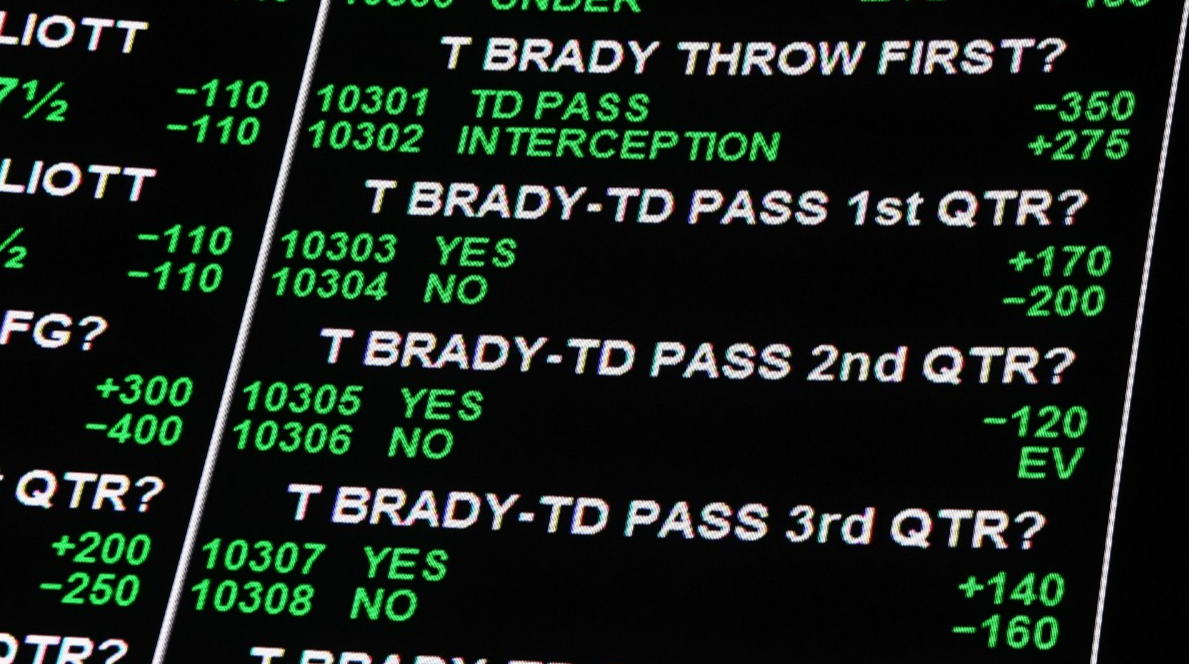Betting odds are a critical component of sports betting, as they determine the potential payout for bettors. Understanding the factors that affect betting odds can help bettors make more informed decisions and enhance their overall betting experience. This article explores the various factors that influence betting odds, providing insights into how these elements shape the betting landscape.
Market Demand and Supply
Betting Volume
One of the primary factors affecting betting odds is the volume of bets placed on a particular outcome. High betting volume can influence odds by reflecting the market’s sentiment and demand.
- Popular Bets: When a large number of bettors place wagers on a specific outcome, the odds for that outcome may decrease, while the odds for other outcomes may increase.
- Market Sentiment: The collective sentiment of bettors can drive odds movement. Positive or negative news, rumors, or market trends can affect how bettors perceive the likelihood of different outcomes.
- Supply and Demand: The principle of supply and demand applies to betting odds. As the demand for a particular bet increases, the odds may shorten to reflect the higher probability of that outcome occurring.
Bookmaker Adjustments
Bookmakers continuously adjust odds to manage risk and ensure profitability. These adjustments can be influenced by various factors, including market demand, new information, and internal risk management strategies.
- Risk Management: Bookmakers adjust odds to manage their exposure to risk. By balancing the books and ensuring that they do not have significant liability on any single outcome, bookmakers can minimize their risk and maintain profitability.
- Profit Margins: Bookmakers include a profit margin, known as the overround or vigorish, in the odds. Adjustments to odds can be made to ensure that the bookmaker maintains a consistent profit margin regardless of the outcome.
- Market Efficiency: Efficient markets, where odds quickly reflect all available information, help bookmakers adjust odds to maintain market equilibrium and minimize arbitrage opportunities.

New Information
Injury Reports and Team News
New information, such as injury reports and team news, can significantly impact betting odds. As new data becomes available, bookmakers adjust the odds to reflect the updated probabilities and market conditions.
- Injury Reports: Injury reports and team news can influence odds movement. For example, if a key player is injured, the odds for the opposing team may shorten, while the odds for the affected team may lengthen.
- Team Form and Performance: Updates on team form and performance can impact odds movement. Positive or negative trends in performance can influence how bookmakers set and adjust the odds.
- Coaching Changes: Changes in coaching staff can also affect betting odds, as new coaching strategies and philosophies can impact team performance and outcomes.
Weather Conditions
Weather conditions can affect the outcome of sporting events and influence odds movement. For instance, rainy conditions may favor a team with a strong defense, leading to changes in odds.
- Weather Forecasts: Weather forecasts can influence odds movement. For example, rainy conditions may favor a team with a strong defense, leading to changes in odds.
- Field Conditions: The condition of the playing field can also affect odds. For instance, a wet or muddy field may favor teams with a strong running game in football.
- Temperature: Temperature can impact player performance and outcomes. Extreme heat or cold can affect how players perform and influence odds movement.
Market Trends
Market trends and patterns can also influence betting odds. Analyzing historical data and market movements can provide insights into how odds are likely to change over time.
- Historical Data: Analyzing historical data helps bettors identify trends and patterns that can influence betting outcomes.
- Real-Time Data: Real-time data analytics provide up-to-date information, allowing bettors to make informed decisions based on the latest developments.
- Market Dynamics: Understanding market dynamics, such as supply and demand, can help bettors anticipate changes in odds and make more informed decisions.
Psychological Factors
Bettor Behavior
The behavior of bettors can also influence betting odds. Emotional decision-making, herd mentality, and other psychological factors can drive odds movement.
- Emotional Decision-Making: Emotional reactions to news, events, or market trends can lead to impulsive betting decisions, which can influence odds movement.
- Herd Mentality: Bettors often follow the crowd, leading to herd mentality and collective market movements that can drive odds changes.
- Overconfidence: Overconfidence in certain outcomes can lead bettors to place large wagers, influencing odds movement and market sentiment.
Media Influence
Media coverage and public perception can also affect betting odds. News articles, social media posts, and expert analyses can shape market sentiment and drive odds movement.
- News Articles: News articles and reports can influence public perception and market sentiment, leading to changes in betting odds.
- Social Media: Social media posts and discussions can amplify market trends and drive odds movement.
- Expert Analyses: Expert analyses and predictions can influence bettor behavior and market sentiment, leading to changes in betting odds.
Technological Innovations
Advanced Data Analytics
Advanced data analytics and predictive modeling have transformed the way bettors make decisions. By analyzing vast amounts of data, bettors can gain valuable insights and make more informed bets.
- Historical Data Analysis: Analyzing historical data helps bettors identify trends and patterns that can influence betting outcomes.
- Real-Time Data: Real-time data analytics provide up-to-date information, allowing bettors to make informed decisions based on the latest developments.
- Machine Learning Algorithms: Machine learning algorithms can analyze data and identify patterns that may not be immediately apparent to human analysts.
Artificial Intelligence and Machine Learning
Artificial intelligence (AI) and machine learning are enhancing the sports betting experience by providing personalized recommendations and improving fraud detection.
- Personalized Recommendations: AI algorithms analyze user profiles and betting histories to provide personalized recommendations that align with individual preferences.
- Behavioral Analysis: Behavioral analysis helps identify patterns and trends in betting behavior, allowing platforms to offer more relevant and timely recommendations.
- Fraud Detection: AI and machine learning enhance fraud detection, ensuring a safer and more secure betting environment.
Conclusion
Understanding the factors that affect betting odds is crucial for making more informed decisions and enhancing your overall betting experience. By recognizing the influence of market demand, new information, psychological factors, and technological innovations, bettors can gain valuable insights into how odds are shaped and make more strategic betting choices. Whether you are a seasoned bettor or new to the world of sports betting, staying informed about the factors that affect betting odds can help you achieve greater success and maximize your potential returns. By conducting thorough research, managing your bankroll effectively, and leveraging advanced data analytics, you can navigate the dynamic world of sports betting more effectively and enhance your overall betting experience.
